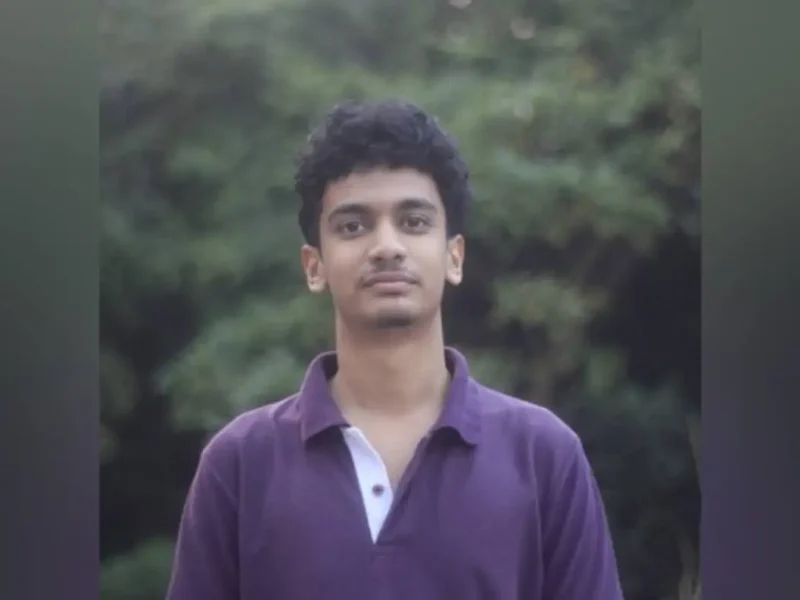
California Offers $10k to College Students for a Year of Public Service
Fernando Martinez, 22, studies applied mathematics at San Jose State University and is part of the first cohort of students to participate in the #CaliforniansforAll College Corps program.
By Peter Schurmann
SAN FRANCISCO, CA (Ethnic Media Services) – Fernando Martinez never owned a computer until he left high school. Today the 22-year-old Kansas native is teaching computer programming to Bay Area youth while he studies applied mathematics at San Jose State University.
Martinez is among the 6,500 college students across California expected to participate in a pioneering program that awards $10,000 towards college costs in return for completing community service work.
“This opportunity gave me the funding I needed to focus on my classes,” says Martinez, who spoke at a media briefing at San Francisco State University highlighting the #CaliforniansforAll College Corps program. “It’s also allowed me to work with and help young people who were like me.”
Launched by California Governor Gavin Newsom, the #CaliforniansforAll College Corps provides participating students $7000 stipends along with a $3000 education grant that can be used to pay for tuition and related costs upon completion of one year of service with a select non-profit. Students will also receive credits toward graduation for their service.
Students will be required to work in one of three areas: climate action, K-12 education, and COVID-19 recovery. The program is also open to undocumented AB 540 eligible students — known as Dreamers — those brought to the country as children who have access to in-state tuition under California law.
Some 48 colleges and universities across the state have joined the initiative, including the University of California school system, California State University, as well as community colleges and private universities.
“We need more Fernandos in this world,” said California Chief Service Officer and program head Josh Fryday, who called the #CaliforniansforAll College Corps a “win, win, win… making this state better for everyone.”
A military veteran, Fryday said the 6,500 students that will make up the program’s initial cohort over the coming two years is “the size of the entire Peace Corps.”
He also stressed the “transformative power of service” in his remarks, noting students who participate in the program will “come back and change our campuses and our communities.”
Fryday continued, “It’s been generations where we have not invested in creating the infrastructure necessary to truly engage all of our people in service… This is the first time the state is investing state dollars into creating service opportunities.”
The program comes as the topic of student debt is front and center in state and national politics, with pressure mounting on President Biden to forgive more than $1 trillion in student loan debt nationwide. Nearly four million Californians owe $147 billion in student debt, with Blacks and Latinos facing the highest rates of default and delinquency.
San Francisco State University President Lynn Mahoney pointed to the nearby shopping mall that sits adjacent to the university campus, noting many of the employees in the mall are students working to cover the costs of their education. The financial pressure on students often precludes them from engaging in opportunities like this one, she said.
“Experience teaches,” said Mahoney, adding, “The more we provide opportunities like this to our least-served students, the stronger our state will be.”
Speakers at Wednesday’s event stressed the program will focus on admitting low-income students as well as undocumented students, adding that if successful it could be expanded and serve as a model for other states.
Kim Greer is the interim provost at Cal State East Bay. She said more than 90% of the available slots for the program at her school have already been filled for this year, an indication of its popularity.
She also echoed Fryday, saying participating students will bring their experiences “back to the classroom, so that all students will become aware of the issues impacting communities.”
The deadline to apply for the #CaliforniansforAll College Corps program varies depending on which university a student is attending. Participating non-profits will be selected in part based on established working relationships with area colleges and universities.
Interested students and their families are advised to visit the program’s website to learn more about eligibility criteria and the application process.
“I knew what I wanted to do in terms of helping people, I just didn’t know to what degree I would be able to do that,” said Martinez of his experience with the program. “And that was the most eye-opening thing for me. I think it’s awesome that instead of just helping one or two students, I’m helping whole classes.”
According to Fryday, that kind of civic engagement is what this moment of multiple crises demands.
“For democracy to thrive, and for us to actually solve our problems… we need to mobilize our most important asset, which is our people,” he said. “We have to create opportunities for people to step up and engage locally, and the College Corps is a huge step toward that vision.”




